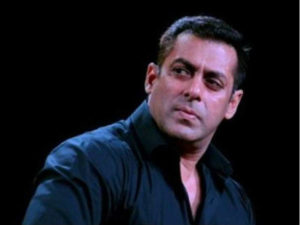India’s Supreme Court admits petition seeking regulation of streaming videos
![A Supreme Court of India bench of Chief Justice Ranjan Gogoi and Justice Sanjiv Khanna has admitted a public interest petition of NGO Justice For Rights, seeking regulation of streaming videos on Netflix, Amazon Prime and Hotstar and issued notices to the Ministries of Law, Information and Broadcasting and Communications of the Government of India. The Supreme Court of India admitted an appeal filed by Advocate Harpreet Singh Hora, on behalf of NGO Justice For Rights, seeking regulation of content […]](https://www.theworldsikhnews.com/wp-content/uploads/2019/05/Amazone-360x270.jpg)
A Supreme Court of India bench of Chief Justice Ranjan Gogoi and Justice Sanjiv Khanna has admitted a public interest petition of NGO Justice For Rights, seeking regulation of streaming videos on Netflix, Amazon Prime and Hotstar and issued notices to the Ministries of Law, Information and Broadcasting and Communications of the Government of India.
The Supreme Court of India admitted an appeal filed by Advocate Harpreet Singh Hora, on behalf of NGO Justice For Rights, seeking regulation of content on the grounds that the content is “unlicensed, unregulated and uncertified content, but also running without being governed by any guidelines.” This overrides the February 2019 order of the Delhi High Court, which dismissed the petition saying there are no State laws for regulation or licensing of these platforms.
The petition has alleged that all these companies, running video streaming platforms called Over-The-Top platforms are running without any licensing whatsoever.
Clearly, technology has overrun us. All sections of society are in the throes of a dilemma. Parents, teachers, jurists, concerned citizens are unable to see through the whole issue and cannot think of methods of regulating this new onslaught which the youth are enjoying.
Though many of us do not want to say it, the proliferation of overt and covert sexual content is the prime reason why regulation is sought. A section of the population revelling in the freedom it provides easily propagates the Manmarzian style of behaviour. Who are you? It is my life? Oh! Come on, give me a break” kind of attitude is rampant.
 The plea also claimed that “due to lack or absence of any guidelines to govern the online platforms, government agencies are creating a special class of broadcasters and discriminating against customers, Cable TV producers and D2H operators.”
The plea also claimed that “due to lack or absence of any guidelines to govern the online platforms, government agencies are creating a special class of broadcasters and discriminating against customers, Cable TV producers and D2H operators.”
Speaking to World Sikh News, Advocate Hora said, “This is a new problem and it requires fresh thoughts and guidelines. Saner elements in the society must engage with the issue in all its ramifications and come up with a workable solution.”
“As far as we are concerned, our view is that these new platforms are operating beyond the domain of law and this has to be questioned and regulated”, he added.
The petition noted “That the said online platforms are displaying unlicensed, unregulated, uncertified content and collecting subscription amounts from Indian consumers whereas the content telecasted on the online platforms is illegal to the extent that certain movies banned under the provisions of the Indian Cinematograph Act and not even passed by the Central Board for Film Certification but are allowed to be telecasted for the general populace by bypassing the law of the land.”
In October 2018, on a petition by Divya Ganeshprasad Gontia, the Bombay High Court had issued a notice to the Ministry of Information & Broadcasting in a similar case. Similarly, there is another case pending in the Karnataka High Court.
 Talking to a section of the media, sometime back, Bollywood actor Salman Khan had said, “I do not like the stuff that is being displayed. My production house will display only that content which has been certified.” ” I have a huge problem with the uncensored stuff. We may not be able to control individual thirst for entertainment but allowing kids to watch such stuff is not acceptable. There should be some responsibility.”
Talking to a section of the media, sometime back, Bollywood actor Salman Khan had said, “I do not like the stuff that is being displayed. My production house will display only that content which has been certified.” ” I have a huge problem with the uncensored stuff. We may not be able to control individual thirst for entertainment but allowing kids to watch such stuff is not acceptable. There should be some responsibility.”
Who will be responsible and to whom and how much? The debate is new and will take a long time to conclude.
 Print
Print

 76
76

